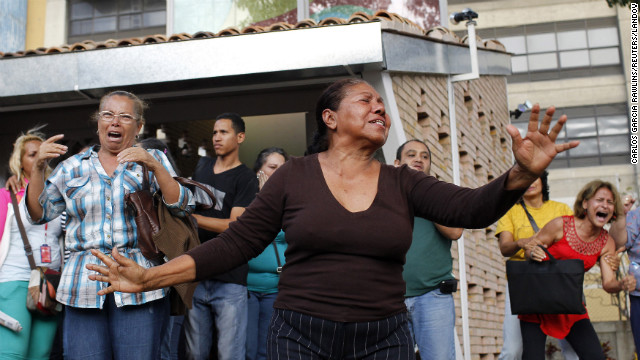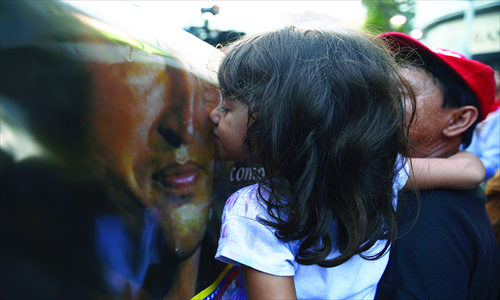
By Eva Golinger,
Eva Golinger is an attorney and writer from New York, living in Caracas, Venezuela, since 2005 and author of "The Chávez Code: Cracking US Intervention in Venezuela" (2006 Olive Branch Press) and "Bush vs. Chávez: Washington's War on Venezuela" (2007, Monthly Review Press). She is Editor-in-Chief of Venezuelan newspaper, the Correo del Orinoco International, and hosts a weekly show on RT Spanish, Detrás de la noticia. She blogs at Chavezcode.com.
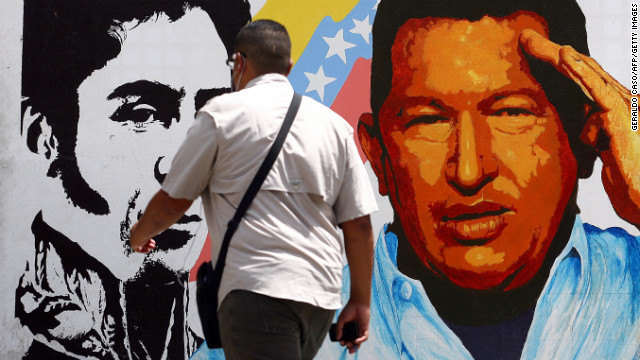
Most of what you read or hear in mass media about President Hugo Chavez is always negative, his faults exaggerated, his discourse distorted and his achievements ignored. The reality is quite different.
Hugo Chavez was beloved by millions around the world. He changed the course of a continent and led a collective awakening of a people once silenced, once exploited and ignored. Chavez was a grandiose visionary and a maker of dreams.
An honest man from a humble background who lived in a mud hut as a child and sold candies on the streets to make money for his family, Chavez dreamed of building a strong, sovereign nation, independent of foreign influence and dignified on the world scene. He dreamed of improving the lives of his people, of eradicating the misery of poverty and of offering everyone the chance of a better life -- the "good life" (el buenvivir), as he called it.President Chavez made those dreams come true. During his nearly 14 years of governance, elected to three full six-year terms but only serving two due to his untimely death, Chavez's policies reduced extreme poverty in Venezuela by more than 75%, from 25% to less than 7% in a decade, according to statistics from the Center for Economic and Policy Research. And overall poverty was reduced by more than 50%, from 60% in 1998 when Chavez first won office to 27% by 2008.
This is not just numbers, this translates into profound changes in the lives of millions of Venezuelans who today eat three meals a day, own their homes and have jobs or access to financial aid.

But the dreams don't stop there. Chavez dreamed of a nation filled with educated, healthy people, and so he established free, quality public education from preschool through doctoral studies, accessible to all. In fact, for those in remote areas or places without educational facilities, schools were built and mobile educational facilities were created to bring education to the people.
Chavez also created a national public health system offering universal, free health care to all, with the help and solidarity of Cuba, which sent thousands of doctors and medical workers to provide quality services to the Venezuelan people, many who had never received medical care in their lives.
To strengthen and empower communities, Chavez propelled policies of inclusion and participatory governance, giving voice to those previously excluded from politics. He created grassroots community councils and networks to attend to local needs in neighborhoods across the nation, placing the power to govern in the joint hands of community groups.

His vision of diversifying his nation and developing its full potential transformed into railways, new industries, satellite cities and innovative transport, such as MetroCable Cars soaring high into the mountains of Caracas to connect people in their steep hillside homes with the bustling city.
The centuries-old dream of Independence hero Simon Bolivar to build a unified "Patria Grande" (Grand Homeland) in South America became Chavez's guiding light and he held it high, illuminating the path he paved. Chavez was a driving force in unifying Latin America, creating new regional organizations like the Union of South American Nations (UNASUR), the Bolivarian Alliance for the Peoples of Our America (ALBA) and the Community of Latin American and Caribbean States (CELAC).
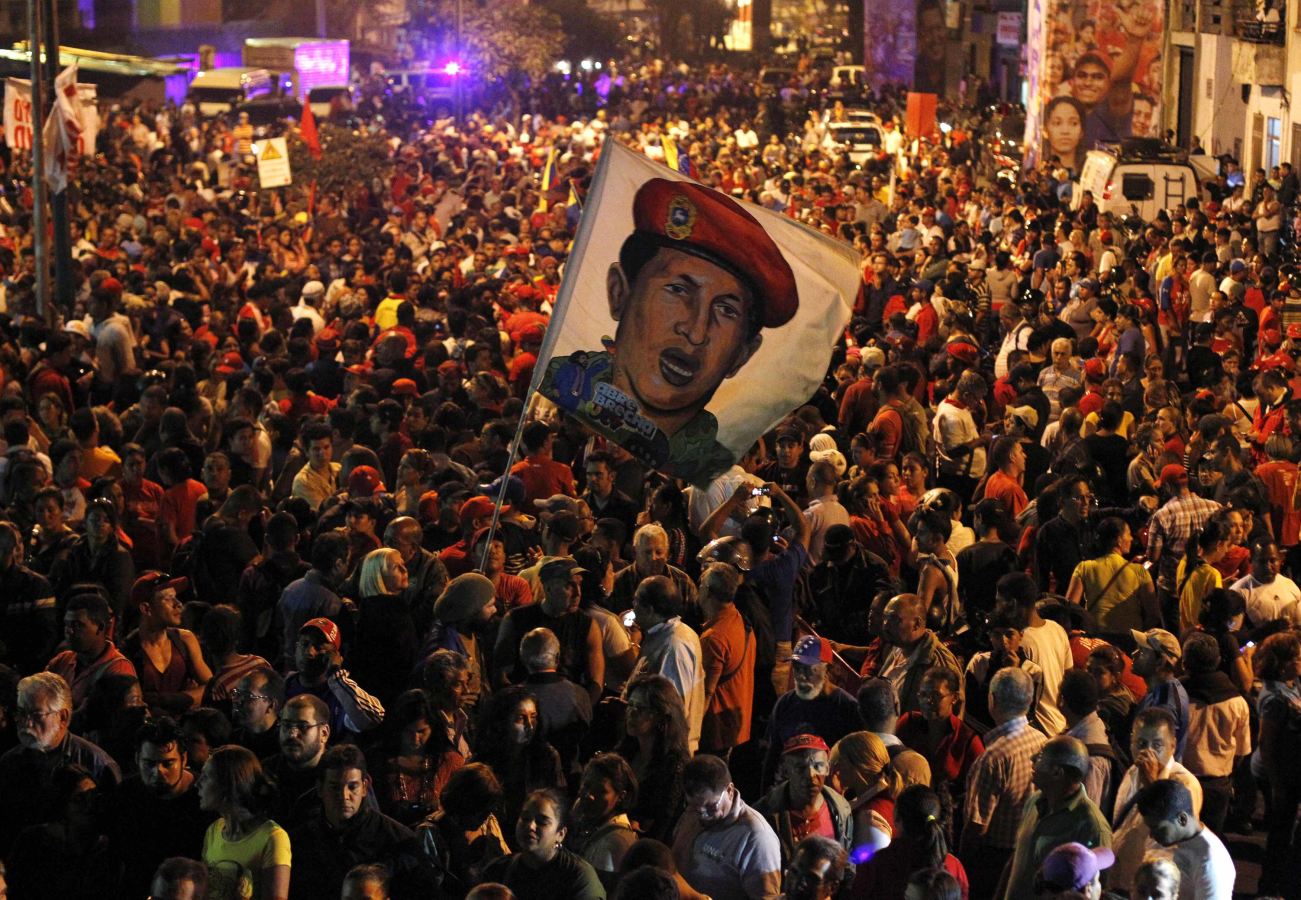
These entities have embraced integration, cooperation and solidarity as their principal method of exchange, rejecting competition, exploitation and domination, the main principles of U.S. and western foreign policy.
Chavez inspired a 21st century world to fight for justice, to stand with dignity before bullying powers that seek to impose their will on others. He raised his voice when no others would and had no fear of consequence, because he knew that truth was on his side.
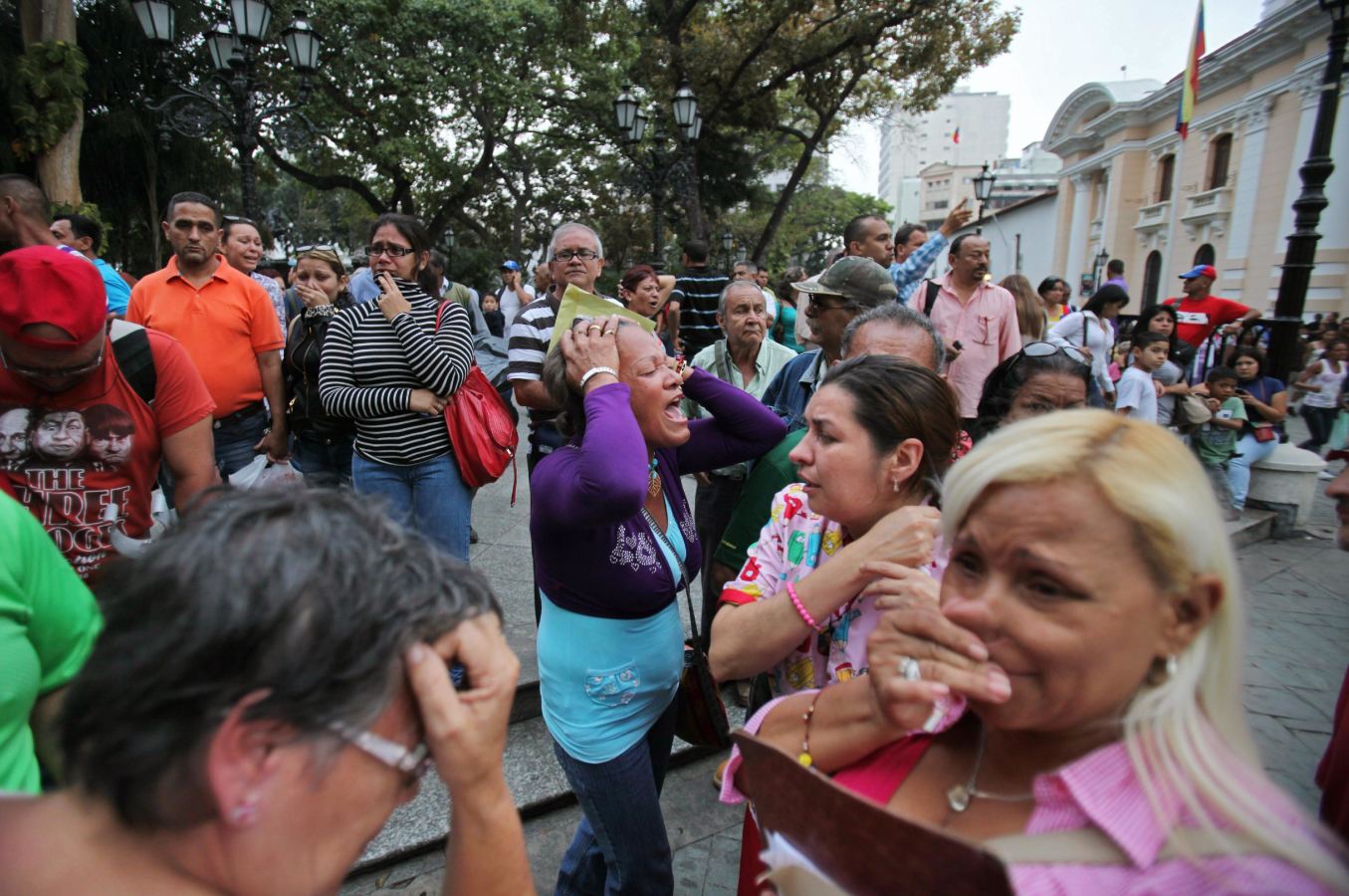
Chavez was a maker of dreams. He recognized the rights of the disabled, of indigenous peoples, all genders and sexualities. He broke down barriers of racism and classism and declared himself a socialist feminist. He not only made his own dreams come true, but he inspired us all to achieve our fullest potential.
Don't get me wrong, things are not perfect in Venezuela by any stretch, but no one can honestly deny that they are much better than before Hugo Chavez became president. And no one could deny that President Hugo Chavez was larger than life.
The first time I flew on President Chavez's airplane, he invited me to breakfast in his private room. It was just me and him. I was nervous and felt anxious and rushed to tell him about the results of my investigations into the United States government's role in the coup d'etat against him in 2002.
After all, that's why I was on the plane in the first place. I had been invited to participate in his regular Sunday television show, Alo Presidente (Hello Mr. President) to present the hundreds of declassified documents I had obtained from U.S. government agencies through the Freedom of Information Act that exposed U.S. funding of coup participants. The date was April 11, 2004, exactly two years after the coup that nearly killed him and sent the nation into spiraling chaos. (Editor's Note: The U.S. government denied involvement in the 2002 coup.)
As I began pulling out papers and spreading documents on the table that separated us, he stopped me. "Have you had breakfast yet?" he asked. "No," I said, and continued fiddling with the revealing paper before me. "We can discuss that later," he said. "For now, tell me about yourself. How is your mother?" he asked me, as though we were old friends.
A flight attendant came through the door of his private room with two trays and placed them on the table. I quickly gathered up the documents. "Let's eat," he said. I started to protest, trying to explain that his time was so limited I wanted to take advantage of every minute. He stopped me and said: "This is a humble breakfast, a breakfast from the barracks, what I most love." I looked at the tray for the first time. On it was a small plate with an arepa, a typical Venezuelan corn patty, a few shreads of white cheese, a couple of pieces of canteloupe and some anchovies. Beside the plate was a small cup of black coffee. No frills and not what you would expect on a presidential airplane.
"After all, I am just a soldier," he added. Yes, Chavez, you are a soldier, a glorious soldier of a dignified, proud and kind people. And you are a maker of dreams for millions around the world.
 The second anniversary of Bahrain’s uprising on February 14 was marked by street protests, tear gas, shotguns and Molotov cocktails. Two protesters and a policeman were killed and dozens of people arrested. The scenes were not unfamiliar in Bahrain, which has gone through two years of upheaval since demonstrators first took to the streets in early 2011 to call for major political reforms.Since the uprising began, more than eighty people have been killed and hundreds more wounded. Scores of people have been arrested and sentenced before military courts—many of them human rights advocates, political opposition figures and physicians who treated wounded protesters. Reports of systematic prisoner abuse and torture are widespread.
The second anniversary of Bahrain’s uprising on February 14 was marked by street protests, tear gas, shotguns and Molotov cocktails. Two protesters and a policeman were killed and dozens of people arrested. The scenes were not unfamiliar in Bahrain, which has gone through two years of upheaval since demonstrators first took to the streets in early 2011 to call for major political reforms.Since the uprising began, more than eighty people have been killed and hundreds more wounded. Scores of people have been arrested and sentenced before military courts—many of them human rights advocates, political opposition figures and physicians who treated wounded protesters. Reports of systematic prisoner abuse and torture are widespread.
 The Obama administration has been relatively low-key in condemning human rights violations by the Bahraini government over the past two years and has largely looked the other way as the monarchy has sought to quash the uprising. Bahrain is home to the US Navy’s Fifth Fleet, which patrols the Persian Gulf, through which much of the world’s oil passes.
In January, ProPublica revealed new details of the weaponry sold to the Bahraini government by the US over the past two years, including ammunition, Black Hawk helicopters and a missile system.
“The US says they support democracy but under the table they do something else entirely. This is America’s politics, they look to their interests and that’s it,” says Taimoor Karimi, a 55 year-old lawyer who was arrested in March 2011 and spent nearly six months in jail—where he says he was tortured—on charges of “spreading false news” and “participating in [an] illegal gathering.”
“Our hope is in the American people. They can pressure their government to pull their hand away from under dictatorship,” he says.
Karimi is among thirty-one Bahrainis who had their citizenship revoked by the Interior Ministry in November for “damaging the security of the state,” in a move widely condemned by international human rights groups. Like most of those named, Karimi has no other citizenship. He is Bahraini but is, in effect, stateless.
“I don’t know what it means or why they did this, all I know is that it is illegal,” Karimi says calmly. “They jailed me, tortured me and then took my citizenship. Now I can’t work, I can’t travel, I just sit hand over hand. This is a revolution of rights, of demands for representation.”
Bahrain’s uprising is commonly portrayed as a sectarian struggle, pitting a disenfranchised Shiite majority against a ruling Sunni monarchy. Sectarian discord undoubtedly exists in the country, where many Shia—who comprise roughy 70 percent of the population—claim to be victims of systematic political and economic discrimination on religious grounds. This is perhaps most glaringly evident in the limited number of Shia who serve in key government agencies such as the army, police and security forces.
The easy narrative of a stark Sunni-Shia divide in Bahrain is often echoed in international media coverage, and the unrest is often snubbed in the Arab world as a sectarian conflict. Yet the reality on the ground is more nuanced than that of a neatly cleaved dichotomous society. As noted in an independent inquiry commissioned by King Hamad bin Isa al-Khalifa in 2011: “Bahraini society is not divided into two monolithic sects. Within the Shia and Sunni communities, there exists a diversity of religious views and political opinions. Broad generalizations about the positions or allegiances of either sect misrepresent the social reality of Bahrain.”
Many protesters and opposition figures blame the government for using sectarian language and trying to stoke sectarianism in a bid to discredit what they see as a rights-based pro-democracy movement. Most notably, the regime destroyed dozens of Shia mosques and other religious structures in the months after the 2011 uprising began, a move that further inflamed inter-sectarian tensions.
The Bahraini government and state media often portray the opposition as being funded and backed by Iran, pointing to “terrorist acts,” and in February directly accused Iran’s Revolutionary Guards of setting up a militant cell to assassinate public figures and attack government buildings.
“The regime tries to say we are driven by Iran but we don’t want the dictatorship Iran has,” says Nader al-Salatna, the vice president of the Bahrain Youth Society for Human Rights. “We want our rights, we want democracy. They are trying to turn this into a sectarian problem.”
The 2011 uprising in Bahrain comes in the wake of a long history of struggle and protest in the island nation, dating back to the late nineteenth century and a popular revolt against the British-backed ruling Khalifa family, to demonstrations against the suspension of the constitution by the emir in the 1970s and a sustained uprising in the 1990s to demand democratic reforms that took a violent turn and was met with a brutal crackdown by the regime. “We have been in revolt for more than a century,” says Salatna.
The 1990s uprising culminated with Hamad bin Isa al-Khalifa ascending to power and implementing a spate of historic reforms. The reforms—such as releasing political prisoners and allowing exiled dissidents to return to the country and establish political parties—were included in a National Action Charter (NAC) that tackled issues like socioeconomic policies, citizenship rights and a system of governance based on a constitutional monarchy with an elected parliament and an independent judiciary. The NAC was approved in a February 2001 national referendum with 98 percent of the vote.Yet in 2002 the king unilaterally imposed a new constitution, which set up a bicameral parliament with an elected lower house and an upper house appointed by the king. All draft legislation must be approved by the upper house, giving the appointed chamber an effective veto over the legislative process. Meanwhile, the king has the power to appoint all ministers and the prime minister, a position that has been held by the king’s uncle since 1971.
In 2011, inspired by the events in Tunisia and Egypt, organizers called for protests on February 14 to coincide with the tenth anniversary of the NAC referendum. “This uprising marks the death of the national charter a decade later,” says Salatna.
For the past two years, an underground group known as the February 14 Coalition has organized frequent demonstrations, many of which involve heading toward Manama’s Pearl Roundabout, the symbolic heart of the 2011 uprising and a major landmark in the city that was razed by the regime after a Saudi-led Gulf intervention force helped crush a peaceful sit-in at the square. Activists say protesters remained overwhelmingly nonviolent in the face of a government brutal crackdown until last year, when they took to using Molotov cocktails against police.
Meanwhile, the more established political opposition organizes marches and peaceful demonstrations on a mass scale. The day after the second anniversary of the uprising, the Al Wefaq National Islamic Society—the largest political opposition group—organized a march on a main thoroughfare west of the capital. The turnout was massive, with tens of thousands marching and chanting against the regime, an impressive display of dissent in a country of just 600,000.
“Al Wefaq is the biggest mover of peaceful demonstrations but it is not the only one,” says Majid Malid, a member of Al Wefaq’s General Secretariat and chair of the Manama Municipal Council.
Yet the February 14 Coalition, and the many youth who associate with it, are calling for an outright toppling of the regime, dismissing opposition groups like Al Wefaq as being politically opportunistic. On the morning of the planned march, a group of teenagers in the village of Sanabis all shrugged and said they would rather head to the Pearl Roundabout than take part in the organized demonstration. “Al Wefaq doesn’t represent us, they are just trying to ride the wave of the revolution to get some power,” says Yousif, an 18-year-old protester.
Al Wefaq has joined with five other opposition groups to take part in a National Dialogue called for by the king involving government and pro-government representatives, the first attempt at talks in eighteen months.
“There is no ceiling for the dialogue. Whatever the participants can achieve it will be passed for implementation. Everything is on the table,” says Isa Abdulrahman, the official spokesperson for the talks, which had their first session on February 10. “I see the dialogue as the only solution moving forward.”
Yet there is widespread mistrust of the government two years into the uprising amid a continued crackdown on dissent. A group of opposition leaders arrested in 2011 known as the “Bahrain 13” remain behind bars, as do human rights defenders, most notably Nabeel Rajab, the outspoken president of the Bahrain Center for Human Rights, all of whom Amnesty International has adopted as “prisoners of conscience” in a recent report.
“I don’t think the National Dialogue is useful. If the government was serious about sitting down to negotiate they would free the political prisoners, they would stop raiding houses and they would stop killing people,” says Jihan Kazerooni, a former government supporter who turned to human rights work after witnessing firsthand the regime’s crackdown on protesters in the Pearl Roundabout and the public hospital in the first weeks of the uprising.
“The choice of Al Wefaq to participate in the talks is strategic. We don’t see a way to solve the crisis in Bahrain except through dialogue,” Malid says in response to criticism from some quarters for taking part in the talks. The group says it does not aim to topple the monarchy and is instead calling for a proper constitutional monarchy with an elected prime minister to replace the King’s uncle, who has been in office since 1971. “If we get a real constitutional monarchy I think a large portion of the opposition would accept that. If the talks fail, the regime bears the responsibility because it means it doesn’t want to fulfill the demands of the people.”
Despite the ongoing talks, the protests in Bahrain seem to have only intensified this month. “If we can continue this for two years, we can continue for ten,” says Husain al-Bahrani, a protester and freelance photographer who has been jailed twice since the uprising began. “It’s only a matter of time.”
The Obama administration has been relatively low-key in condemning human rights violations by the Bahraini government over the past two years and has largely looked the other way as the monarchy has sought to quash the uprising. Bahrain is home to the US Navy’s Fifth Fleet, which patrols the Persian Gulf, through which much of the world’s oil passes.
In January, ProPublica revealed new details of the weaponry sold to the Bahraini government by the US over the past two years, including ammunition, Black Hawk helicopters and a missile system.
“The US says they support democracy but under the table they do something else entirely. This is America’s politics, they look to their interests and that’s it,” says Taimoor Karimi, a 55 year-old lawyer who was arrested in March 2011 and spent nearly six months in jail—where he says he was tortured—on charges of “spreading false news” and “participating in [an] illegal gathering.”
“Our hope is in the American people. They can pressure their government to pull their hand away from under dictatorship,” he says.
Karimi is among thirty-one Bahrainis who had their citizenship revoked by the Interior Ministry in November for “damaging the security of the state,” in a move widely condemned by international human rights groups. Like most of those named, Karimi has no other citizenship. He is Bahraini but is, in effect, stateless.
“I don’t know what it means or why they did this, all I know is that it is illegal,” Karimi says calmly. “They jailed me, tortured me and then took my citizenship. Now I can’t work, I can’t travel, I just sit hand over hand. This is a revolution of rights, of demands for representation.”
Bahrain’s uprising is commonly portrayed as a sectarian struggle, pitting a disenfranchised Shiite majority against a ruling Sunni monarchy. Sectarian discord undoubtedly exists in the country, where many Shia—who comprise roughy 70 percent of the population—claim to be victims of systematic political and economic discrimination on religious grounds. This is perhaps most glaringly evident in the limited number of Shia who serve in key government agencies such as the army, police and security forces.
The easy narrative of a stark Sunni-Shia divide in Bahrain is often echoed in international media coverage, and the unrest is often snubbed in the Arab world as a sectarian conflict. Yet the reality on the ground is more nuanced than that of a neatly cleaved dichotomous society. As noted in an independent inquiry commissioned by King Hamad bin Isa al-Khalifa in 2011: “Bahraini society is not divided into two monolithic sects. Within the Shia and Sunni communities, there exists a diversity of religious views and political opinions. Broad generalizations about the positions or allegiances of either sect misrepresent the social reality of Bahrain.”
Many protesters and opposition figures blame the government for using sectarian language and trying to stoke sectarianism in a bid to discredit what they see as a rights-based pro-democracy movement. Most notably, the regime destroyed dozens of Shia mosques and other religious structures in the months after the 2011 uprising began, a move that further inflamed inter-sectarian tensions.
The Bahraini government and state media often portray the opposition as being funded and backed by Iran, pointing to “terrorist acts,” and in February directly accused Iran’s Revolutionary Guards of setting up a militant cell to assassinate public figures and attack government buildings.
“The regime tries to say we are driven by Iran but we don’t want the dictatorship Iran has,” says Nader al-Salatna, the vice president of the Bahrain Youth Society for Human Rights. “We want our rights, we want democracy. They are trying to turn this into a sectarian problem.”
The 2011 uprising in Bahrain comes in the wake of a long history of struggle and protest in the island nation, dating back to the late nineteenth century and a popular revolt against the British-backed ruling Khalifa family, to demonstrations against the suspension of the constitution by the emir in the 1970s and a sustained uprising in the 1990s to demand democratic reforms that took a violent turn and was met with a brutal crackdown by the regime. “We have been in revolt for more than a century,” says Salatna.
The 1990s uprising culminated with Hamad bin Isa al-Khalifa ascending to power and implementing a spate of historic reforms. The reforms—such as releasing political prisoners and allowing exiled dissidents to return to the country and establish political parties—were included in a National Action Charter (NAC) that tackled issues like socioeconomic policies, citizenship rights and a system of governance based on a constitutional monarchy with an elected parliament and an independent judiciary. The NAC was approved in a February 2001 national referendum with 98 percent of the vote.Yet in 2002 the king unilaterally imposed a new constitution, which set up a bicameral parliament with an elected lower house and an upper house appointed by the king. All draft legislation must be approved by the upper house, giving the appointed chamber an effective veto over the legislative process. Meanwhile, the king has the power to appoint all ministers and the prime minister, a position that has been held by the king’s uncle since 1971.
In 2011, inspired by the events in Tunisia and Egypt, organizers called for protests on February 14 to coincide with the tenth anniversary of the NAC referendum. “This uprising marks the death of the national charter a decade later,” says Salatna.
For the past two years, an underground group known as the February 14 Coalition has organized frequent demonstrations, many of which involve heading toward Manama’s Pearl Roundabout, the symbolic heart of the 2011 uprising and a major landmark in the city that was razed by the regime after a Saudi-led Gulf intervention force helped crush a peaceful sit-in at the square. Activists say protesters remained overwhelmingly nonviolent in the face of a government brutal crackdown until last year, when they took to using Molotov cocktails against police.
Meanwhile, the more established political opposition organizes marches and peaceful demonstrations on a mass scale. The day after the second anniversary of the uprising, the Al Wefaq National Islamic Society—the largest political opposition group—organized a march on a main thoroughfare west of the capital. The turnout was massive, with tens of thousands marching and chanting against the regime, an impressive display of dissent in a country of just 600,000.
“Al Wefaq is the biggest mover of peaceful demonstrations but it is not the only one,” says Majid Malid, a member of Al Wefaq’s General Secretariat and chair of the Manama Municipal Council.
Yet the February 14 Coalition, and the many youth who associate with it, are calling for an outright toppling of the regime, dismissing opposition groups like Al Wefaq as being politically opportunistic. On the morning of the planned march, a group of teenagers in the village of Sanabis all shrugged and said they would rather head to the Pearl Roundabout than take part in the organized demonstration. “Al Wefaq doesn’t represent us, they are just trying to ride the wave of the revolution to get some power,” says Yousif, an 18-year-old protester.
Al Wefaq has joined with five other opposition groups to take part in a National Dialogue called for by the king involving government and pro-government representatives, the first attempt at talks in eighteen months.
“There is no ceiling for the dialogue. Whatever the participants can achieve it will be passed for implementation. Everything is on the table,” says Isa Abdulrahman, the official spokesperson for the talks, which had their first session on February 10. “I see the dialogue as the only solution moving forward.”
Yet there is widespread mistrust of the government two years into the uprising amid a continued crackdown on dissent. A group of opposition leaders arrested in 2011 known as the “Bahrain 13” remain behind bars, as do human rights defenders, most notably Nabeel Rajab, the outspoken president of the Bahrain Center for Human Rights, all of whom Amnesty International has adopted as “prisoners of conscience” in a recent report.
“I don’t think the National Dialogue is useful. If the government was serious about sitting down to negotiate they would free the political prisoners, they would stop raiding houses and they would stop killing people,” says Jihan Kazerooni, a former government supporter who turned to human rights work after witnessing firsthand the regime’s crackdown on protesters in the Pearl Roundabout and the public hospital in the first weeks of the uprising.
“The choice of Al Wefaq to participate in the talks is strategic. We don’t see a way to solve the crisis in Bahrain except through dialogue,” Malid says in response to criticism from some quarters for taking part in the talks. The group says it does not aim to topple the monarchy and is instead calling for a proper constitutional monarchy with an elected prime minister to replace the King’s uncle, who has been in office since 1971. “If we get a real constitutional monarchy I think a large portion of the opposition would accept that. If the talks fail, the regime bears the responsibility because it means it doesn’t want to fulfill the demands of the people.”
Despite the ongoing talks, the protests in Bahrain seem to have only intensified this month. “If we can continue this for two years, we can continue for ten,” says Husain al-Bahrani, a protester and freelance photographer who has been jailed twice since the uprising began. “It’s only a matter of time.”



